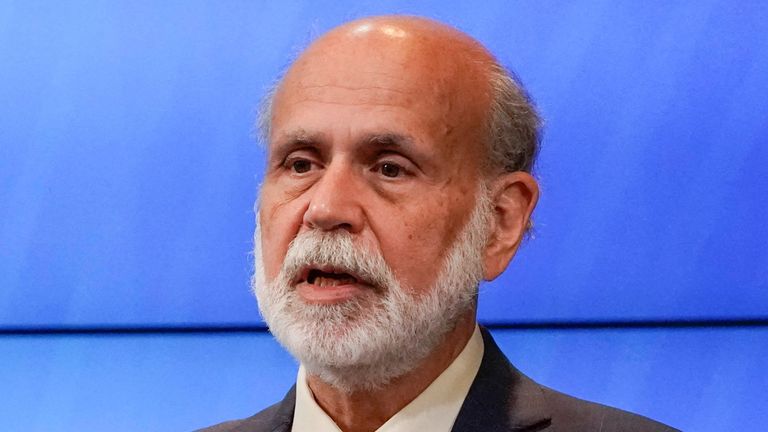Poor software and bias toward making only small, sequential changes is one of the reasons economic forecasters at the Bank of England failed to predict and prepare for the cost of living crisis, brought about by high inflation, according to a “once in a generation” review.
The review announced last year was undertaken by the former head of the US central bank, known as the Fed, and said the quality of the Bank’s economic expectations “deteriorated significantly in the past few years” due to out of date software and “excessive incrementalism”.
Economic shocks ‘by their nature difficult to forecast’
Though the “unusually large forecasting errors” were said to be “probably inevitable”, according to the review, conducted by Dr Ben Bernanke.
The problem was not unique to the Bank, rather something all central banks and private forecasters suffered from, it said.
Large and unprecedented global shocks hurt economies across the world and brought prices up.
COVID lockdowns brought about supply chain shortages and bottlenecks, while the invasion of Ukraine led energy prices to soar.
Such events are “by their nature difficult to forecast”, the Dr Bernanke review said.
The Bank had made a number of inaccurate forecasts – such as expecting a year-long recession and not factoring in the impact of wage rises on inflation – and has been accused of failing to raise interest rates high enough or soon enough to slow inflation.
Interest rates have now been risen to a 2008 financial crisis-era high of 5.25% in an effort to draw money out of the economy and dampen activity.
One of the ‘most serious problems’
One of the “most serious problems” with forecasting at the Bank, the review said, is “key software is out of date and lacks important functionality”.
There’s been “material under-investment” due to short term pressures of at the Bank, Dr Bernanke said.
“Major financial investment” is needed to fund upgrades, the review said, though sums were not discussed.
New ways of doing things
New ways of forecasting should also be adopted, according to Dr Bernanke’s report.
To be more accurate, the Bank should model for various economic scenarios, including if wage prices were to rise.
Greater attention should be paid regularly reviewing supply chains, jobs market supply and trade policy.
Modelling should also be done for other sectors that impact the economy, including the financial, housing, and energy sectors.
Read more from business:
Sub-postmaster wrongly sent to prison rejects apology
Port Talbot steel workers vote to strike
Telegraph suitor to quit board of GB News owner
The Bank welcomed the review, with Mr Bailey saying work to implement the recommendations has already begun.
It will take “some time”, however, to develop detailed plans before they can even be implemented, he added.
No timeline for adoption has been given, though Mr Bailey said “a phased approach to implementing changes is likely to be appropriate for a programme of this scale”.
Mr Bailey admitted last year there were “very big lessons” to learn about how the central bank had dealt with the economic shocks of recent times.
Dr Bernanke steered the world’s largest economy through the financial crisis of 2008 while at the helm of the Federal Reserve.

